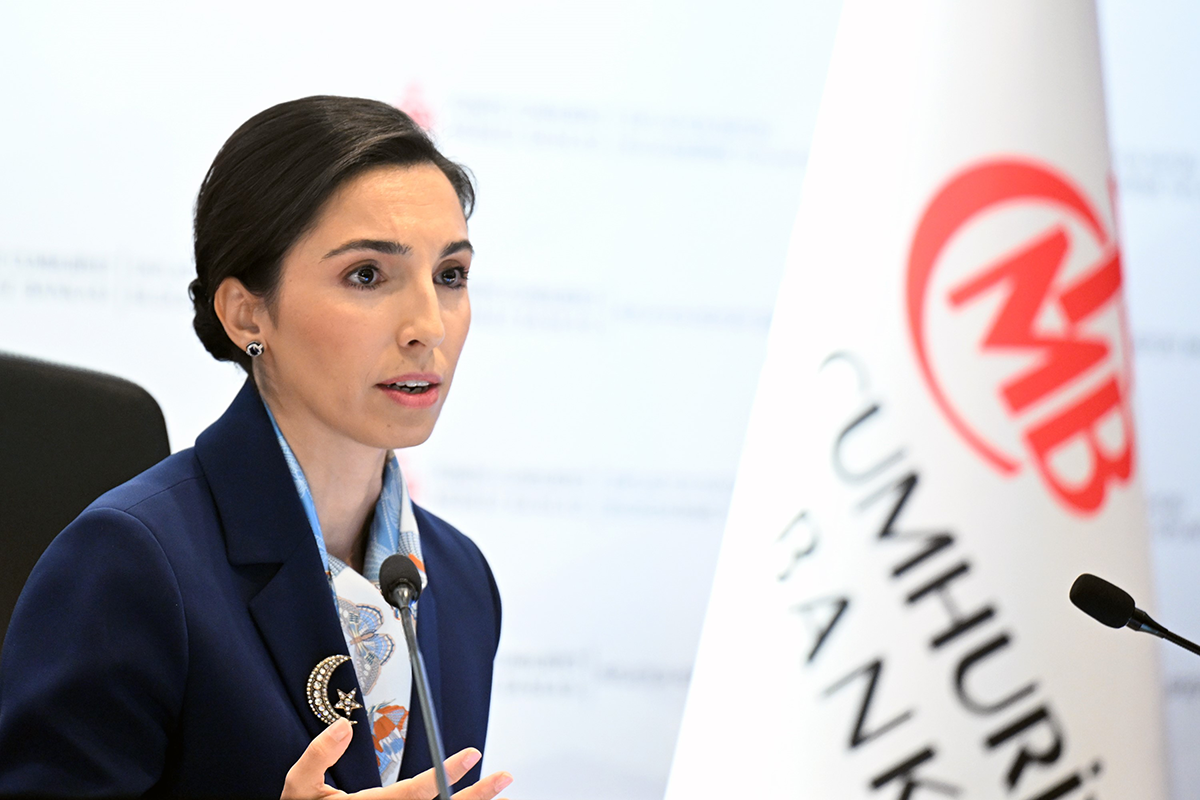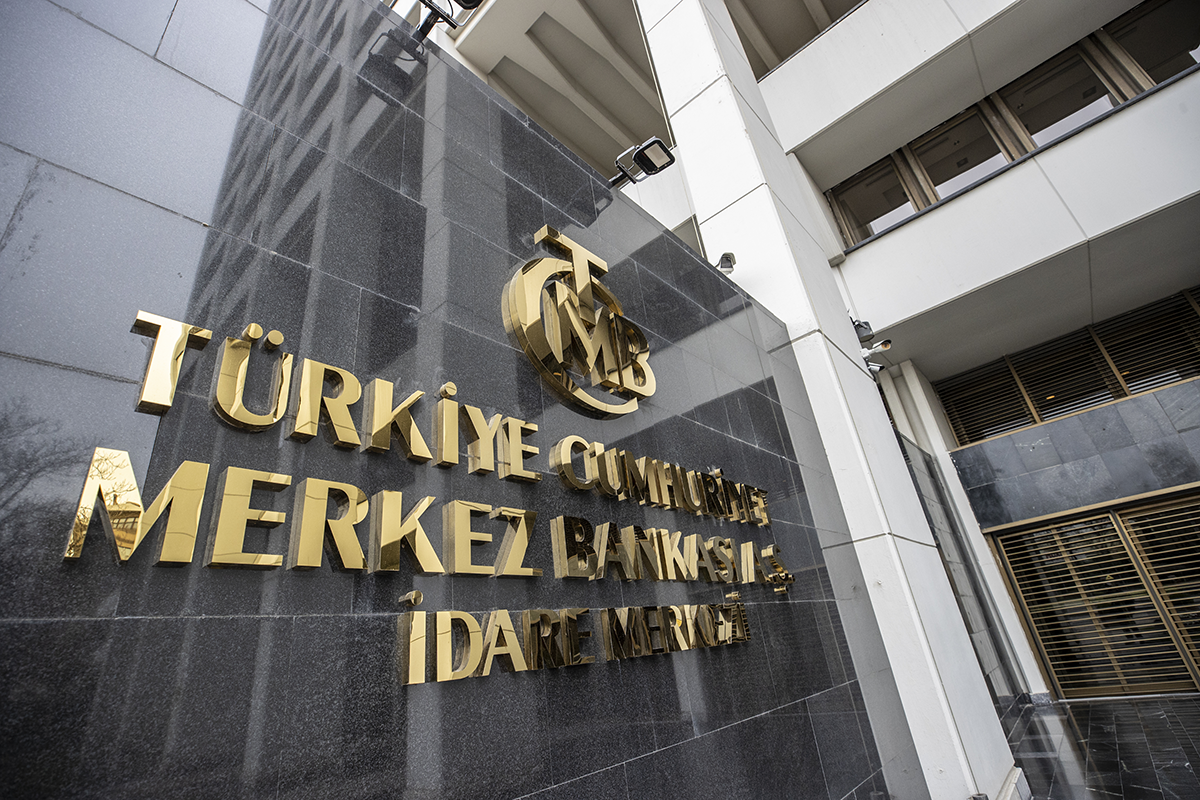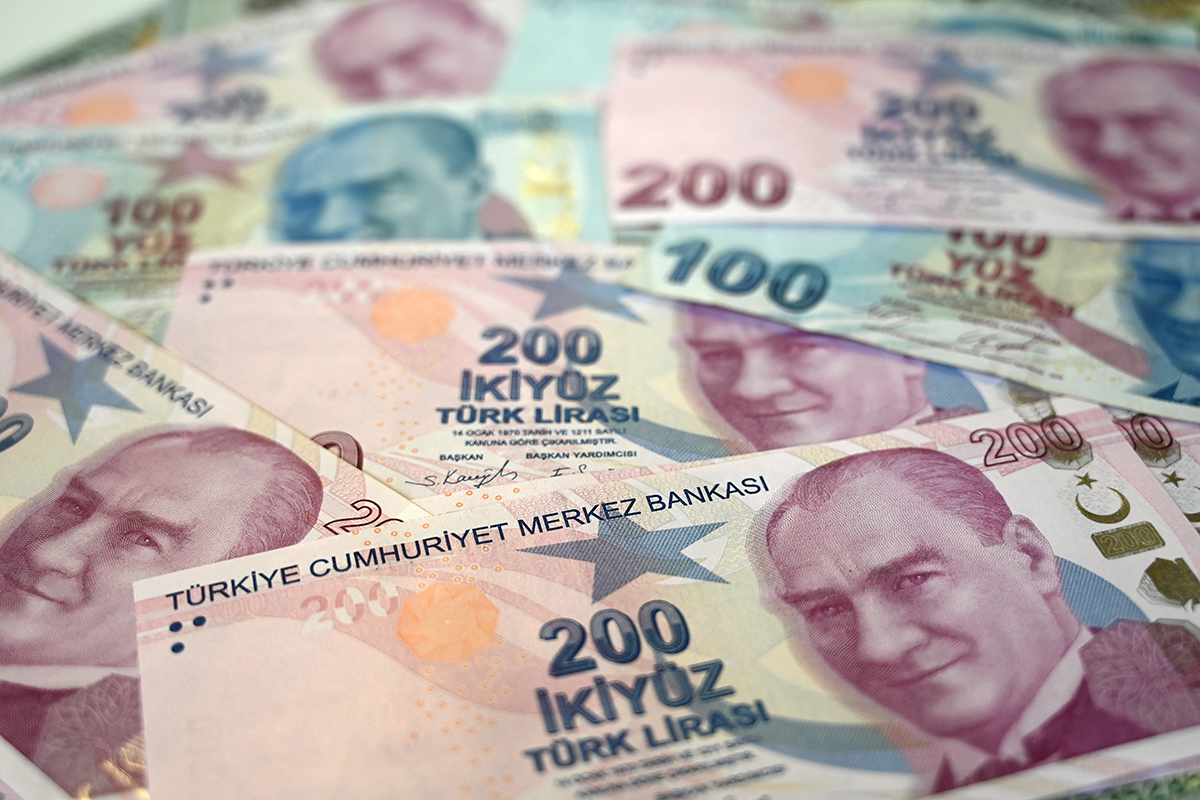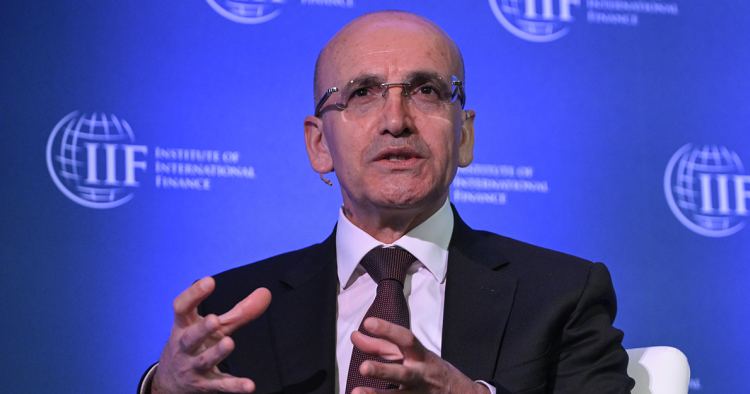This article is part of a longer report from MEI's Turkey Program on Turkey in the aftermath of the March 2024 local elections, What Comes Next for Turkey? Prospects for Change on the Political, Economic, and Foreign Policy Fronts.
Introduction
For years under President Recep Tayyip Erdoğan, Turkey pursued an unconventional monetary policy, maintaining excessively low interest rates, burning through the Central Bank’s foreign currency reserves to keep the exchange rate stable, and providing foreign exchange (FX) protection for a quarter of all demand deposits, among other measures. The situation, long untenable, finally became unsustainable in the run-up to the presidential and parliamentary elections in May 2023. In the immediate aftermath of the vote, President Erdoğan announced a dramatic shift, returning to orthodox monetary policy and appointing a well-known and market-friendly minister of finance, Mehmet Şimşek, along with a new governor of the Central Bank of the Republic of Turkey (CBRT), Hafize Gaye Erkan. Both individuals had strong reputations and market participants gave them credit despite President Erdoğan’s ideological approach to economic policy. Although Mrs. Erkan later resigned from her post for personal reasons and was replaced by Deputy Governor Fatih Karahan, this did not change the trajectory of the macroeconomic outlook and the policy of economic normalization has continued apace.
The damage caused by years of bad policy was extensive and, as a result, the Turkish economy was slow to recover. However, the potential catastrophic outcomes of these policies, such as an inability to redeem external debt or pay import bills, were avoided at the last minute. Financial stability was shored up fairly quickly, and prices for stocks, government bonds, and houses began to normalize rapidly as well. While there was significant skepticism about the policy changes and the country’s new economic direction among investors, businesses, and households at the start, as the months went on it became clear that the reforms were genuine and set to continue. Erdoğan’s government and its point person on economic policy, Mr. Şimşek, have done much to persuade them. The changes worked well enough that investors were convinced that the worst might be over for the Turkish economy, although the view among the public was different, as many increasingly felt that the side effects of the new economic policies would be harsh and would directly affect them.
The government’s efforts to bolster the Turkish economy and restore investor confidence have gone through several distinct phases since the 2023 general elections. While there have been tangible improvements on a number of fronts as a result, the country faces both declining household purchasing power in the short term and a range of broader economic challenges in the longer run.

The First Phase: The New Administration’s Honeymoon Period
Mr. Şimşek was announced as the new minister of treasury and finance on June 3, 2023,1 and Mrs. Erkan was appointed as the new governor of the CBRT on June 9, 2023.2 Interventions to support the exchange rate stopped and market watchers keenly awaited the first meeting of the CBRT’s Monetary Policy Committee (MPC) in late June to see what would happen to interest rates. Fortunately, the result was the first rate hike — a rise from 8.5% to 15% — after a long period of ultra-low real interest rates, with nominal rates below inflation. The next MPC meeting in July came as a disappointment though, with an additional hike of just 250 basis points, even as inflation topped 38%.3 With policy normalization proceeding at a less than rapid pace, the lira continued to depreciate. On July 28, 2023, three more qualified new candidates were appointed as deputy governors of the CBRT, a move that the market greeted positively.4 The policy rate was subsequently hiked again, to 25%, in the next MPC meeting in August, bringing it to the highest level since the decisive end of the 2001 economic crisis in 2004. These measures, though certainly welcomed, came late, significantly limiting their potential impact. At the end of the new administration’s first two months, the results were mixed: The worst was prevented but no permanent improvement had been achieved
The Second Phase: Monetary Policy was Almost Strong Enough
In the second phase, the administration took further steps to normalize monetary policy and more rate hikes were implemented. The depreciation of the lira slowed down thanks not only to higher rates but also to the introduction, once again, of currency interventions. However, the sale of FX reserves was not as excessive as it had been before the election. Neither the preannounced exchange rate band nor the de facto fixed exchange rate were applied. Instead, the depreciation of the lira continued at a slower pace without causing a sharp decline in total FX reserves. The CBRT policy rate reached 40% in November 2024, gradually rebuilding trust among corporate investors.
But then a new and unexpected problem arose over allegations of unprofessional behavior by Mrs. Erkan in December 2023. Although she denied them and promised to take legal action,5 reports alleging that her father was involved in critical decisions at the CBRT caused surprise and unease in the market. She was subsequently absent for a month from Ankara and spent an unusual amount of time in New York. As more evidence and witnesses emerged, it amplified the claims against her, turning the issue into a real scandal without her promised legal action to counter it. The public perception was that she would be dismissed by President Erdoğan soon after the March 2024 local elections. The probability that her replacement would be opposed to monetary normalization was a risk that the market took seriously. Ultimately, she was forced to resign and was replaced by Mr. Karahan, a respected economist with Federal Reserve experience, as CBRT governor on Feb. 2, 2024.6 The policy rate was already at 45% and his initial statements removed any doubts in the market. Net capital flows were balanced and the only major concern was over the use of fiscal policy and the government’s very high levels of spending compared to its much more limited tax revenues. Monetary policy was tight for the most part, but the same could not be said about fiscal policy due to the approaching elections.
The Third Phase: Financial Instability is Out of the Question
Under these conditions, the natural reactions by households and businesses are strong consumer spending and raw material purchases using loans as well as heightened demand for FX and gold as investments. Although the policy rate was increased gradually, the 35% depreciation of the lira after the May 2023 general elections resulted in an expectation that the same would happen again after the March 2024 local elections. Therefore, the slow gains achieved after the general elections were put at severe risk. In just two months, from late January to late March 2024, the CBRT’s net FX position — net reserves when swap agreements are removed — declined dramatically from $46 billion to -$76 billion, roughly where it had stood before the May 2023 elections.7 The Turkish lira was about to depreciate heavily due to a self-fulfilling prophecy by consumers, businesses, and retail investors.
This unexpected market reaction could only be reined in by an unexpected rate hike to 50%,8 the highest level in the 22 years of the Justice and Development Party’s (AKP) rule, and it was delivered by the CBRT without any hesitation. This hawkish move to ensure financial stability was a big success, quickly tamping down speculation about the depreciation of the lira. Rapid and strong de-dollarization began and led to a sharp decline in FX-denominated demand deposits by $17.4 billion. In addition, owing to the cheaper cost of funding, the domestic real sector chose to borrow FX loans and converted them into lira deposit accounts to use the money in their daily operations or just to speculate on higher lira-denominated interest gains than the currency’s likely minor depreciation. This indirectly contributed to the improvement of the CBRT’s reserves by nearly $18.2 billion.
High interest rates and the policy of limiting depreciation of the local currency sparked interest among international investors in pursuing gains through the carry trade. A form of uncovered interest arbitrage, the carry trade involves borrowing from low-yield markets, such as Switzerland, Japan, and China, and lending to high-yield markets, like Turkey, Egypt, and Mexico. The combination of a high yield and an announced (but not officially guaranteed) strong currency attracted foreign investors after the local elections. Since the final rate hike in late March, roughly $22 billion has poured into Turkish markets through swap agreements and equivalent instruments, alongside $10.3 billion in portfolio inflows into treasury bills and Turkish government bonds.9
The CBRT took in all of this to address its major weak point, FX reserves, resulting in an unprecedented improvement of its FX reserves from -$76 billion to positive territory in less than three months. Aside from the very low maturity of these flows, this was more than a success story — it was a miracle. While there is no publicly disclosed detailed data on these flows, the average duration can be estimated at around three months. This means the money will need to be reinvested in lira-denominated instruments. This fact is the Turkish economy’s new weak point. No net inflows for equities, real estate, and direct investments have been observed in the past year.

The Necessary Path to Boost International Investment
This episode clearly showed the Turkish economy’s vulnerability as a result of its hard currency needs and the Erdoğan government’s weak credibility on economic policy. While most people may not understand economic theory, they did realize that the damage done by years of pursuing the wrong policies was quite substantial. They also realized that the reforms introduced to bring about a quick and lasting improvement in the economy were far from guaranteed and might well be rolled back in the future. Experts already knew this, but the public reaction confirmed it. While the headline figures for the CBRT’s reserves and total FX-protected deposit stock look satisfying, the sensitivity to portfolio outflows is much higher.
The economic administration knows that record-high external debt with less than one year of maturity cannot be financed by the unusual methods used in previous years. The current account deficit — basically the result of higher imports of goods and services than exports — also makes foreign investment needs more urgent and difficult. Previous methods to address this, such as swap agreements linked to political ties with foreign governments and the sale of public assets to foreign investors, cannot offset the $232.1 billion in short-term external debt10 and the additional current account deficit of nearly $24 billion-34 billion.11 No International Monetary Fund (IMF) agreement is in the works, nor are political relations with the US good enough to bring one about. The US wields veto power in the IMF with its 16.5% voting share,12 as a comprehensive stand-by agreement requires 85% of the total vote. Moreover, Erdoğan’s stance against pursuing any IMF agreement remains unchanged. World Bank loans will be doubled to $35 billion under a recent decision;13 however, they are always linked to projects and thus are not suitable to ensure macroeconomic stability. The Islamic Development Bank will also increase its project financing to Turkey to a record-high balance, $6.3 billion,14 but this has the same limitation as the World Bank funds. A $50.7 billion investment deal with the United Arab Emirates has not yet begun.15 Even the parts of the deal related to export loans and the recovery of the region hit by the February 2023 earthquake, totaling $11.5 billion, have not been confirmed. At present, there are no rumors about any other major Gulf investments either.
The size of the problem and the need for new solutions suggest that Turkey will try to regain the interest of international investors. This has been the underlying reason for its pursuit of policy normalization since the general elections in May 2023.
A New Phase for the Second Year of Mr. Şimşek’s Term?
With Mr. Şimşek having started his second one-year term on June 3, 2024, the problems inherited from the previous administration, suspicions about policy continuity due to the local elections, and lagging outcomes of the market normalization process are no longer excuses for the new economic team. The CBRT has already done its best to raise rates, although some of the hikes came quite late. President Erdoğan is on the same page as Mr. Şimşek about not raising the minimum wage mid-year or making any one-off payments to pensioners. He has defended Mr. Şimşek’s economic program and not caused any misunderstandings. The missing element now is fiscal discipline — or what is known more notoriously as austerity. Mr. Şimşek has promised to keep the budget deficit high but controllable.
The ultra-high budget deficit target in the government’s mid-term program of 2.7 trillion lira (or roughly $80-90 billion) was not realized because of recovery costs following the destructive February 2023 earthquake. Higher interest rate expenses, rising social security payments, the cost of FX-protected deposits, and ongoing FX-guaranteed mega-project allowances contributed as well. In addition, populist moves in the run-up to the 2023 general elections also pushed up budget deficits. Generous government spending in the form of social transfers has always been common before elections in Turkey. All of these caused higher deficits and boosted aggregate demand, leading to a wider foreign trade deficit and greater inflationary pressure. The introduction of new taxes and raising of rates on existing ones have been announced in a step-by-step fashion. Additional moves are expected going forward as boosting revenue by levying new taxes is easier than cutting state expenditure; as of yet no significant fiscal measures have been introduced to control extravagant government spending and mega-project investments.
Everything is now in place to generate positive results from the economic program above and beyond financial stability and market normalization. With the 2024 local elections out of the way, there is no scheduled vote anytime soon and a referendum on a potential constitutional amendment is not a must for the government. Erdoğan’s administration seems to be normalizing its foreign relations as well, with the exception of Israel, as a result of the Gaza war. Erdoğan has even started to soften the tone of his domestic rhetoric and visited the leader of the opposition Republican People’s Party (CHP), Özgür Özel, at the CHP headquarters on June 11 for the first time in 18 years.16 All of these developments were publicized across the media, meaning that everyone is aware of the policy shift, even if most people are suspicious of its extent and duration.

But Worrying Side Effects May End the Policy Shift
Although current conditions mostly favor the new economic program, there are significant obstacles as well. Most leading central banks around the world are still continuing high interest rate policies as inflationary pressures have not been extinguished sufficiently. This has weakened the expected push of global liquidity to emerging markets in search of higher returns — a trend that should benefit Turkey as one of the best-known (if highly volatile) emerging markets. On the foreign policy front, changes are unlikely to be achieved very rapidly. A White House visit by Erdoğan has been repeatedly delayed despite Turkey’s approval of Sweden’s NATO membership.17 Turkey’s presence in Northern Syria and its procurement of the Russian S-400 missile defense system are also difficult issues that will need to be resolved too. Domestic political polarization is still very high and Erdoğan’s room for maneuver may not be as wide as expected due to the hawkish stance of his partner, Nationalist Action Party (MHP) leader Devlet Bahçeli. Moreover, New Welfare Party (YRP) leader Fatih Erbakan was successful in undermining the AKP in the recent local elections by criticizing Turkey’s ongoing trade with Israel, forcing the government to subsequently cut off trade ties, damaging Erdoğan’s attempt to improve relations with the West.18 Due to unpublished debt to Russian state-owned gas firm Gazprom, a détente with the West could be more limited than commonly anticipated.
High interest rates and a decreasing budget deficit may lead to a hard landing for the Turkish economy. People are already worried about the loss of purchasing power so far and strict policies may affect their political choices. Erdoğan and the AKP’s defeat in the recent local elections was in no small part driven by declining household purchasing power. Contractionary fiscal and monetary policies could also result in higher bad loans and unemployment rates. The government now has three years before it faces the ballot box again, and this may give it enough time to implement policies to address these issues, unless there is social unrest. Some sectors will be more negatively affected than others in the coming years. Mr. Şimşek’s disinflationary program should keep the depreciation of the lira below the inflation rate, thus making domestically produced goods and services more expensive over time. Exports and tourism, in turn, may not contribute enough to offset the trade deficit. The lobbying power of these sectors on Erdoğan’s government should be taken into account as well.
Erdoğan’s Priority is Always Elections
Under these conditions, new economic programs can work and provide financial stability. For example, the sharp deterioration in the CBRT’s foreign exchange position before the local elections was swiftly reversed. Skyrocketing house prices are normalizing in dollar terms.19 Lira-denominated government bonds, especially short-term ones, can be attractive for global investors. Credit default swaps, a well-known indicator of dollar-denominated Eurobond risk premiums, are at their lowest level since the pandemic.20 A one- or two-notch credit rating upgrade would not be surprising and would go a long way toward encouraging more international investment in Turkey. The stock market index has already broken its record high in lira terms, but significant foreign capital inflows will be needed for it to do the same in dollar terms as well.21
However, economic momentum will likely be slower moving forward, and reduced social transfers may also increase income disparities. The next election cycle will probably start in 2027 and continue until the local elections in 2029. This means that maintaining financial stability and controlling the cost of living may not be enough to achieve Erdoğan’s political goals. The promised improvements must give him the economic tools needed to use in the next election cycle. Otherwise, he may end the new policies or even call for snap elections.
The presidential system in Turkey and Erdoğan’s strict control of his party make his preferences the single most important factor when considering the outlook. The content and scope of the potential constitutional amendments under consideration are also unknown, adding greater uncertainty over the next few years. All economic actors will remain suspicious of the political motives behind his economic moves, reducing the effectiveness of the policies. Therefore, instead of expecting the long-term success of these economic policies, short-term achievements should be considered while investing in Turkey. Similarly, expectations on the political front should also be viewed in the same way, with a focus on the near term. Put briefly, it would be wise to appreciate policies when they are carried out, but remain cautious of promises until they are implemented.
M. Murat Kubilay is an independent financial advisor on the Turkish economy, a columnist in national media outlets in Turkey, and a Non-Resident Scholar with MEI’s Turkey Program.
Photo by Celal Gunes/Anadolu via Getty Images.
Endnotes
1 “Turkey's Erdogan appoints Mehmet Simsek as finance minister,” Reuters, June 3, 2023, https://www.reuters.com/world/middle-east/turkeys-erdogan-appoints-mehm….
2 “Who is Hafize Gaye Erkan, Turkey’s new central bank chief?,” Al Jazeera, June 9, 2023, https://www.aljazeera.com/news/2023/6/9/who-is-hafize-gaye-erkan-turkey….
3 Ezgi Erkoyun and Nevzat Devranoglu, “Turkey hikes again below expectations, promises more tightening,” Reuters, July 20, 2023, https://www.reuters.com/markets/rates-bonds/turkey-raises-rate-by-250-b….
4 Ezgi Erkoyun, “Turkey's Erdogan appoints three central-bank deputy governors, boosting bonds,” Reuters, July 28, 2023, https://www.reuters.com/world/middle-east/turkeys-erdogan-appoints-thre….
5 Beril Akman, “Turkish Central Bank Chief Says Reports on Family Are Baseless,” Bloomberg, January 19, 2024, https://www.bloomberg.com/news/articles/2024-01-19/turkey-central-bank-….
6 “Turkey Central Bank Governor Quits and Points to Campaign against Her,” Financial Times, February 2, 2024, https://www.ft.com/content/026e961c-23de-48a2-b3ad-670c7d8de219.
7 “International Reserves and Foreign Currency Liquidity,” TCMB (Central Bank of the Republic of Türkiye), https://www.tcmb.gov.tr/wps/wcm/connect/EN/TCMB+EN/Main+Menu/Statistics….
8 “Central Bank Interest Rates,” TCMB (Central Bank of the Republic of Türkiye), https://www.tcmb.gov.tr/wps/wcm/connect/en/tcmb+en/main+menu/core+funct….
9 “Securities Statistics,” TCMB (Central Bank of the Republic of Türkiye), https://www.tcmb.gov.tr/wps/wcm/connect/en/tcmb+en/main+menu/statistics….
10 “Short Term External Debt Statistics,” TCMB (Central Bank of the Republic of Türkiye), https://www.tcmb.gov.tr/wps/wcm/connect/EN/TCMB+EN/Main+Menu/Statistics….
11 “Survey of Market Participants,” TCMB (Central Bank of the Republic of Türkiye), https://www.tcmb.gov.tr/wps/wcm/connect/EN/TCMB+EN/Main+Menu/Statistics….
12 “IMF Members' Quotas and Voting Power, and IMF Board of Governors,” International Monetary Fund, last modified June 26, 2024, https://www.imf.org/en/About/executive-board/members-quotas.
13 “World Bank to increase exposure to Turkey to $35 bln within three years – Anadolu,” Reuters, September 7, 2023, https://www.reuters.com/world/middle-east/world-bank-increase-exposure-….
14 Gokhan Ergocun, “Islamic Development Bank to provide Türkiye $6.3B worth of financing,” Anadolu Agency, April 29, 2024, https://www.aa.com.tr/en/economy/islamic-development-bank-to-provide-tu….
15 Rachna Uppal and Yousef Saba, “Turkey's Erdogan signs $50 billion in deals during UAE visit,” Reuters, July 19, 2023, https://www.reuters.com/world/middle-east/turkeys-erdogan-ends-gulf-tou….
16 “President Erdoğan visits CHP headquarters after 18 years,” Duvar English, June 11, 2024, https://www.duvarenglish.com/president-erdogan-visits-chp-headquarters-….
17 Steve Holland and Jonathan Spicer, “Turkey's Erdogan postpones tentative White House visit, sources say,” Reuters, April 26, 2024, https://www.reuters.com/world/middle-east/turkeys-erdogan-postpones-ten….
18 Gulsin Harman, Aaron Boxerman, Ben Hubbard, and Thomas Fuller, “As Turkey Cuts Trade Ties, Israel’s Isolation Grows,” The New York Times, May 3, 2024, https://www.nytimes.com/2024/05/03/world/middleeast/turkey-israel-gaza-….
19 “Residential Property Price Index,” TCMB (Central Bank of the Republic of Türkiye), April 2024, https://www.tcmb.gov.tr/wps/wcm/connect/EN/TCMB+EN/Main+Menu/Statistics….
20 “Türkiye CDS 5 Yıllık USD (TRGV5YUSAC=R),” Investing.com, https://tr.investing.com/rates-bonds/turkey-cds-5-year-usd.
21 Gokhan Ergocun, “Türkiye's BIST 100 index hits record level, topping 10,000 points for 1st time,” Anadolu Agency, April 29, 2024, https://www.aa.com.tr/en/economy/turkiyes-bist-100-index-hits-record-le….
The Middle East Institute (MEI) is an independent, non-partisan, non-for-profit, educational organization. It does not engage in advocacy and its scholars’ opinions are their own. MEI welcomes financial donations, but retains sole editorial control over its work and its publications reflect only the authors’ views. For a listing of MEI donors, please click here.













